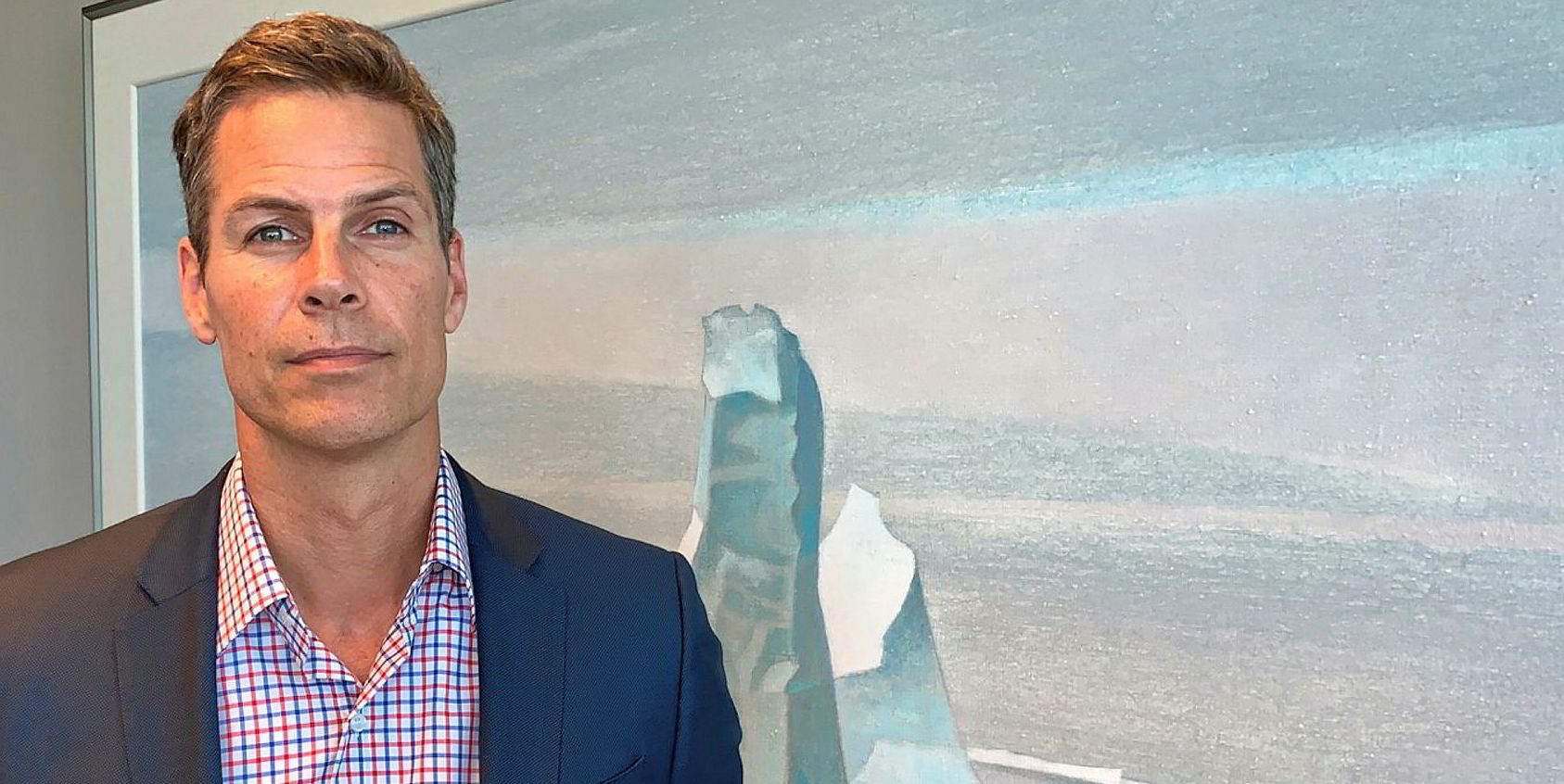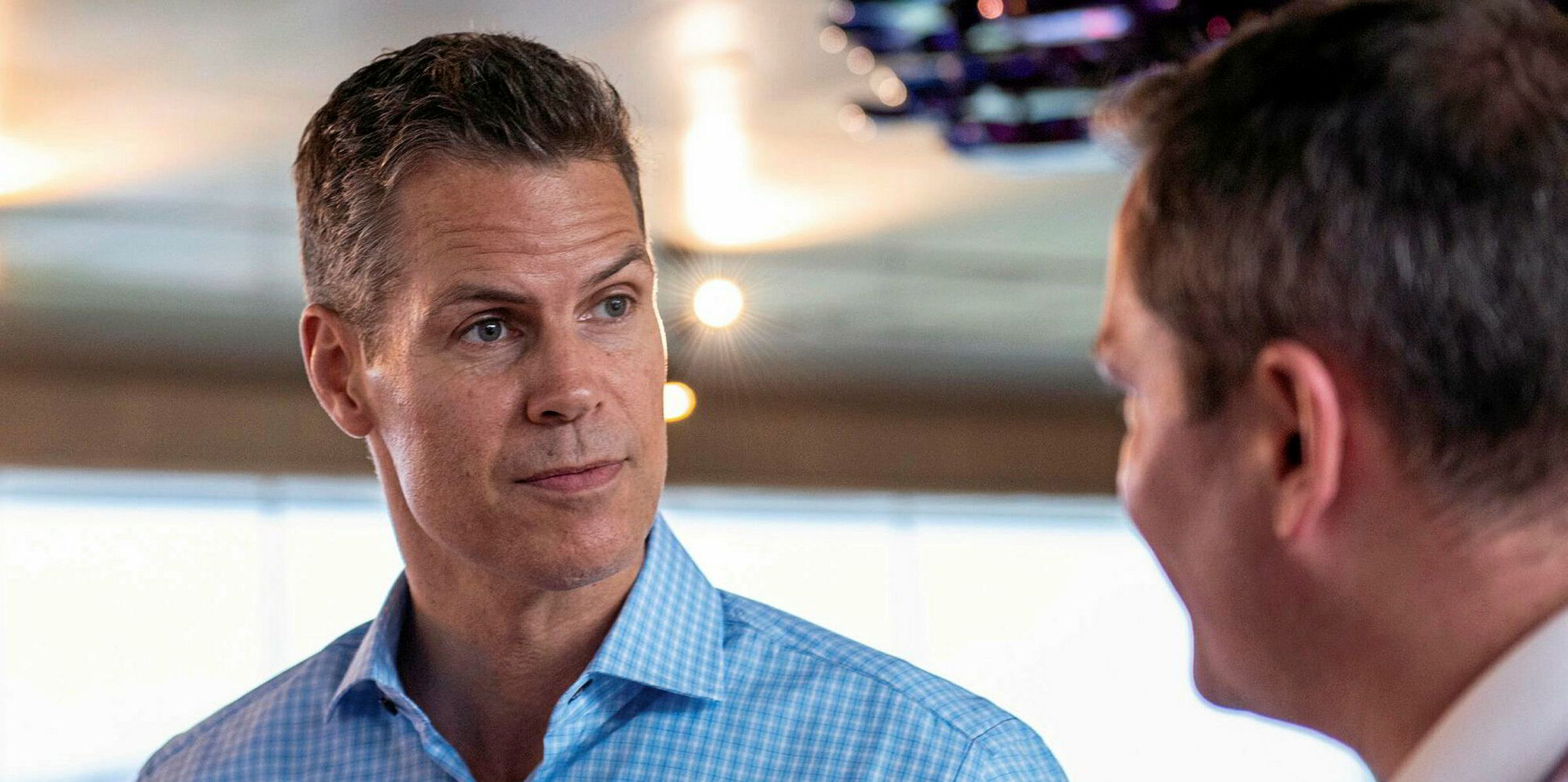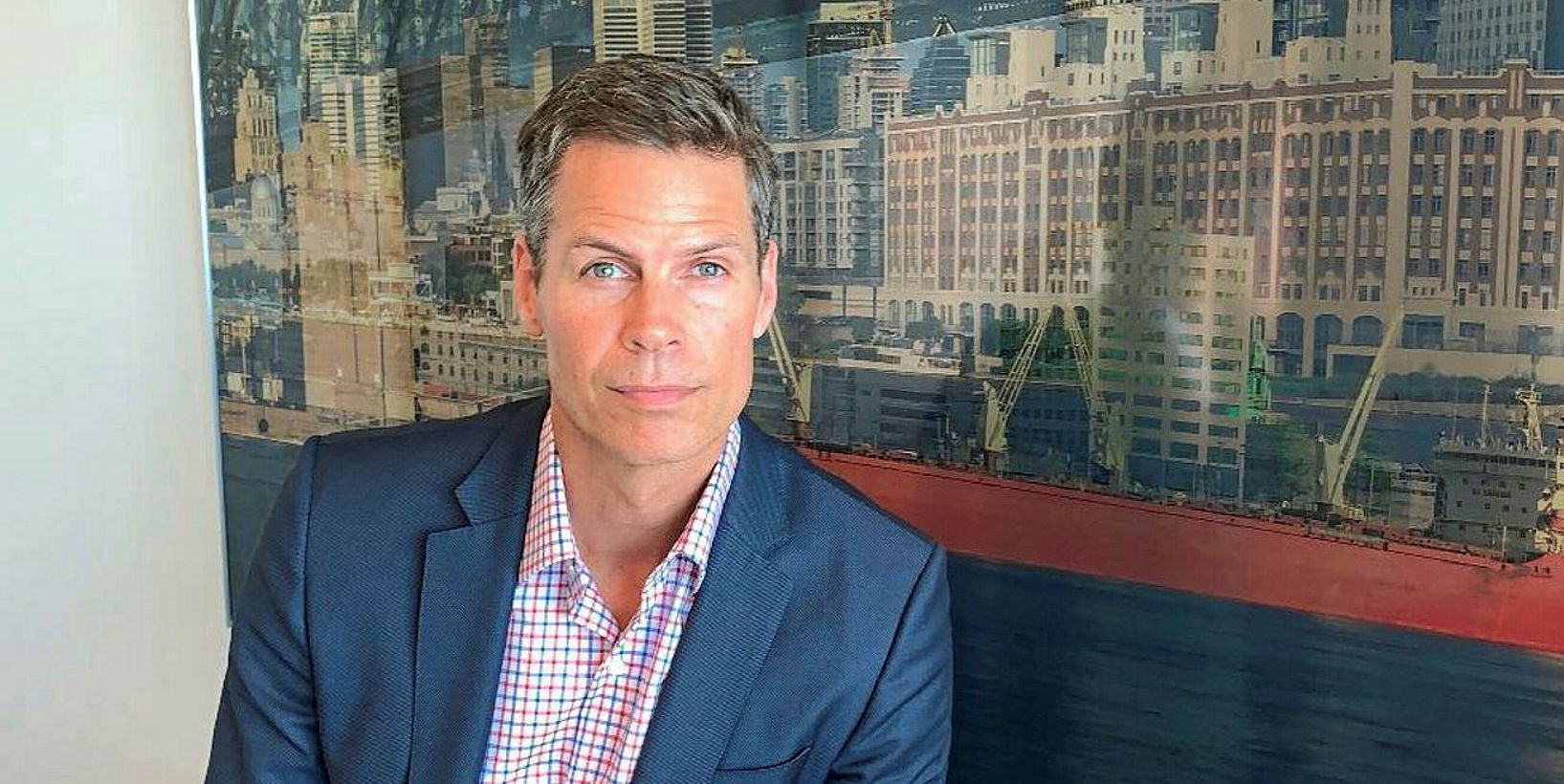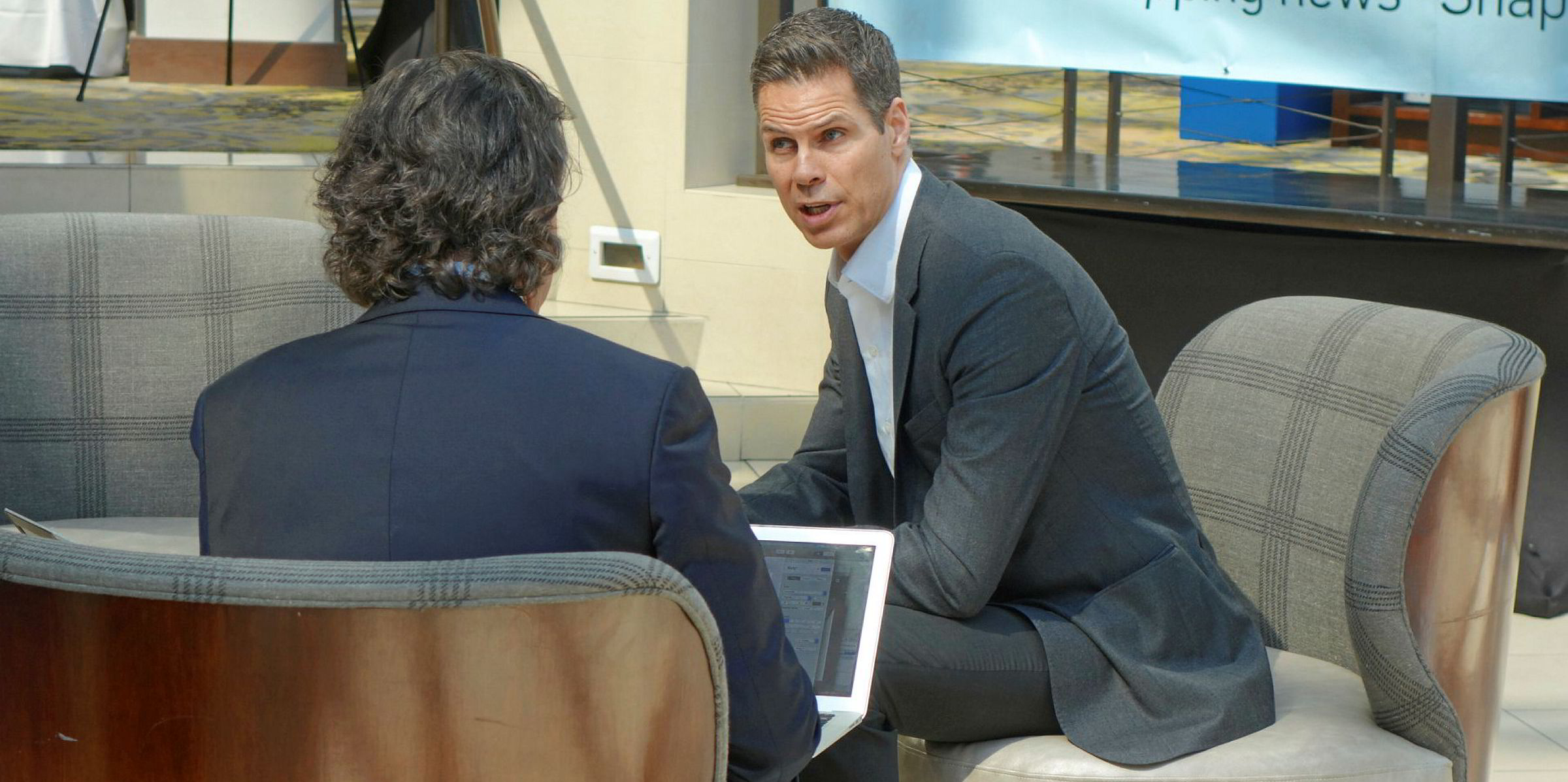Paul Pathy has spent just three years as the sole chief executive of Fednav, and he admits he doesn’t know what Canada’s largest dry bulk shipowner will look like when his tenure eventually is done.
At 47, he has work to do and plenty of time to do it.
If Fednav is the same at the end of his reign as it is today, it will still be a success, Pathy says.
But as for his leadership?
“I would like to achieve the next level of success, whatever that looks like,” he tells TW+ in his 35th-floor Montreal office as Fednav celebrates its 75th year.
“The company will probably look different 10 or 20 or 30 years from now, but will stand on the same values my father created.
“If the company looks exactly the same at that time, it will still as a whole be successful. But for me, it won’t be. I won’t have done anything. There’s just so much potential for us to reach the next level.”
It is a time for reflection, and not just because of the 75-year milestone.
Pathy is putting his own imprint on the company he took over from his father, Laurence “Ladi” Pathy, in one sense because it is simply time to do so.
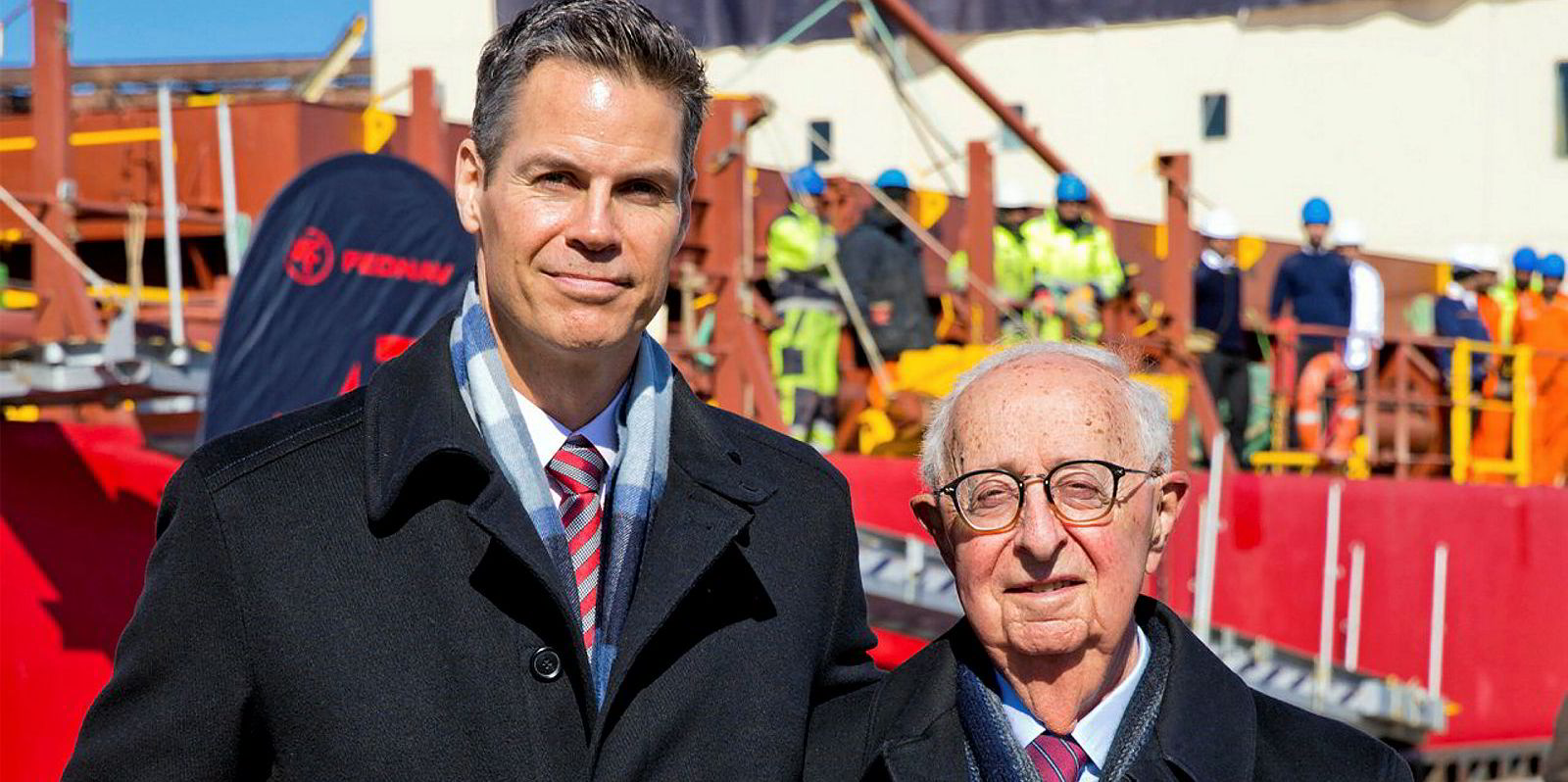
“It’s a generational turnover,” he explains. “My father’s key vice presidents are getting ready to retire, some are already gone, and now it’s time for me to put in place my vice presidents and senior VPs. I’m assembling a team that fits with the new dynamic of my generation.”
He has already appointed a vice president for technology — something that would have been unlikely in his father’s day.
To be sure, Pathy has laid out a clear direction in a number of ways since 2016, when his brother, Mark, stepped down as co-chief executive and left Paul alone at the wheel.
Pathy likes an asset-heavy approach, with a total fleet of 125, including 64 owned ships at the time of TW+’s visit. This runs counter to some competitors’ asset-light approach, but Pathy doesn’t care — it’s what Fednav needs to serve its customers.
He also doesn’t care about other people’s money. As he told TradeWinds in March, Fednav is happy as a private company and sees no reason to seek a public listing.
And he was one of the first executives to take a clear stand on scrubbers as a means of complying with IMO 2020: he doesn’t like them, and Fednav won’t be using them.
Fednav remains the dominant shipowner in Canada’s Great Lakes trade, while Pathy sees the greatest long-term upside in expanding its presence in the international market.
Still, he’s in the early stages of the job, at least compared with the nearly 40 years his father spent in control.
“As sole CEO now for the last two or three years, it’s a chance for me to write a new chapter,” he says. “What happened before I took over was pretty exceptional. I don’t take any credit for it. Effectively, I’m the new guy in town. I’m looking to stand on the shoulders of our previous success and reach new heights.
“But I’m starting at zero. The company’s not, but I am. My job is: ‘Let’s be successful starting today’. So I’m building a new team with that in mind. We’re building something new which might be different but will always be attributable to what was built before.”
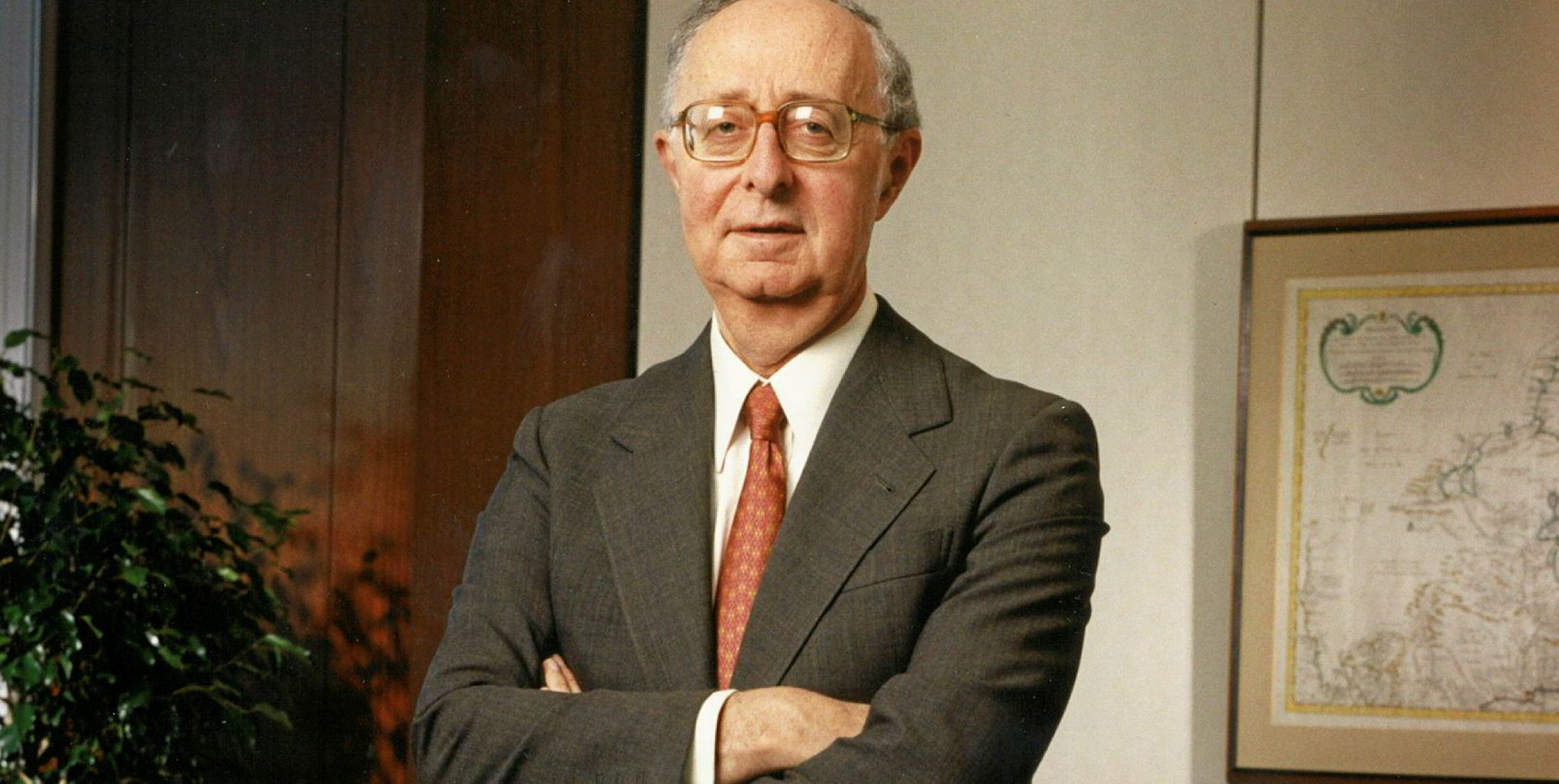
The building began in September 1944, when Federal Commerce & Navigation Co Ltd — “Ship Owners, Operators & Agents” — was formed in Toronto by three Hungary-born brothers who had relocated to North America from Egypt. One was Ladislas Pathy, father of Ladi and grandfather of Paul.
Fednav’s original headquarters was not Montreal. “Nobody seems to understand why it was founded in Toronto,” Pathy says with a chuckle.
Fednav was one of the first owners to operate vessels in the Arctic trade.
Another early milestone came in 1959 with the opening of the St Lawrence Seaway, a system of locks, canals and channels that allows traffic to pass between the Atlantic Ocean and the Great Lakes.
Ladi Pathy bought out the family interest in Fednav and took control in 1972, setting in motion the growth that made the company the presence it is today.
He was educated at Princeton University and New York University School of Law. A 1981 New York Times article described Ladi’s efforts to move Fednav into investments in natural resources to offset shipping’s cyclical nature.
Fednav owned 20 ships at the time and had 40 more under charter.
“I would hazard a guess that, if you sorted it all out, he is one of the 20 richest people in Canada,” a financial analyst told the Times.

Yet Paul Pathy’s first memories of shipping were mixed: “I remember being seven or eight years old and having a birthday party on a ship, with a ship-shaped cake.
“And I remember, frankly, some tough times. Shipping has its ups and downs and there were some tough times in the 1980s and 1990s. Shipping was a challenging industry and it was occasionally very tough on the family.
“Yet my father was very entrepreneurial and was always trying to build something special. Even with the challenges, I always knew shipping was something exciting and something special.”
Pathy worked summer jobs on the Montreal docks at 13 and 14, and a couple of summers in the Fednav offices. But it was never clear that he would succeed his father and he was never pressured.
“He didn’t think it was healthy to push the kids into the family business,” Pathy recalls.
“He said: ‘All I ask is that you give me two or three years, work hard at it, and if you choose to do something else, you’ll have my blessing’.”
That didn’t happen right away. After attending business school, Pathy took work with a small private equity firm, Tech Investments, in Kansas City, Missouri, that had nothing to do with shipping.
“After the tech crash, I was working for a start-up that was running out of cash in 2002 and I called up my father. He said, ‘How about now?’ ”
As it turned out, Pathy gave shipping more than two or three years. His first job in 2003 was as general manager of FMT, the group’s terminals business. He moved to senior vice president of the business development group in 2007.
With Ladi Pathy’s retirement in 2010, Paul and older brother Mark were elevated to co-chief executives, with Mark taking charge of Fednav International and Paul commanding vessel assets, Arctic operations and projects, finance and risk management.
They continued until 2016, when Fednav announced that Mark would step aside from his duties to leave Paul as chief executive through an agreement that was described as “amicable”.
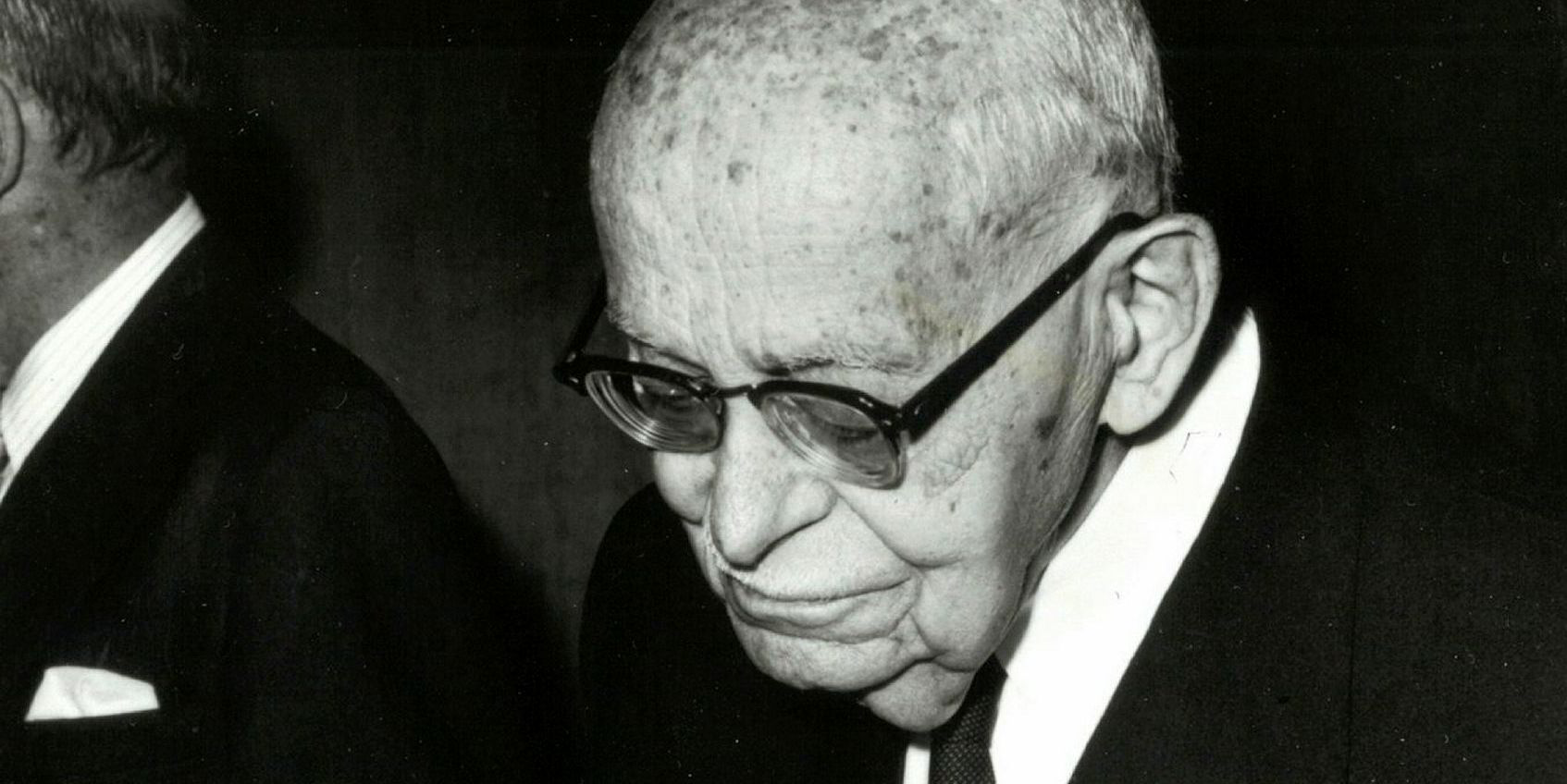
“We’re in the fortunate position that the family gets along very well,” Pathy says.
“But we realised that the two-CEO model just wasn’t efficient to run the company. I’d like to think from the family perspective that we’ve done [the transition] as well as it can be done.”
The family leadership still includes Ladi, who is chairman of the board at age 84.
“He’s in the office regularly,” Pathy says. “He comes around and asks me a few tough questions now and then. He’s always there for support, to lend an ear or offer some advice.”
Asked which of his father’s lessons he would take forward in his own tenure, Pathy replies: “Probably two things: integrity and doing things the right way; and also the value of long-term partnerships and friendships.
“We have a number of partnerships that extend 20 or 25 years, and we continue to try to find partners who share the same basic values that we do.
“One lesson has been not chasing the $1 tomorrow but trying to build something that will get you $10 over time. And I think also we’re known for taking care of our people. We think of our employees as family and stand behind them, and they stand behind us.”
Amid the 75th anniversary celebrations at offices in Japan, Germany, Belgium, Singapore and Brazil, the discerning observer may have noticed that Fednav has tweaked its logo and launched a new slogan: “Navigating Complexity”.
Although the idea may have roots in Fednav’s core ice trade, it also applies to its place in a rapidly changing landscape for international shipowners.
The changes aren’t major, but Paul Pathy is just getting warmed up.
